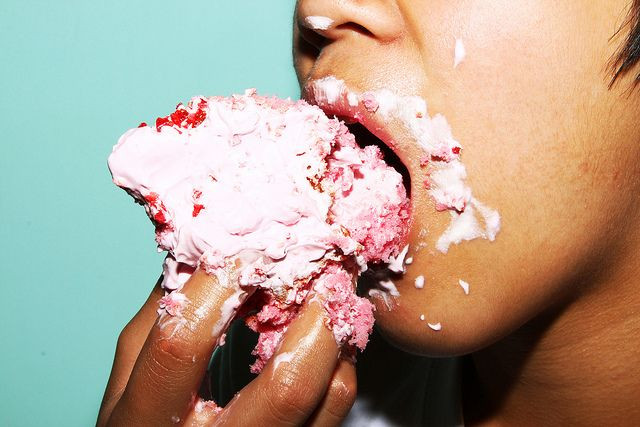The Happy Meal Effect: Pairing Small Meals With 'Prizes' Helps Reduce Food Cravings

Eating less is not fun for people since portion size does require discipline and self-control. But, a recent study published in the Journal of the Association for Consumer Research suggests something called "the happy meal effect" could help motivate kids and adults to choose smaller portions when paired with a non-food "prize" or reward.
"Yet, by combining one shorter-term desire (to eat) with another shorter-term desire (to play) that in combination also address a longer-term desire (to be healthy), different sources of happiness become commensurable," said the researchers, in the press release. Researchers from the University of Arizona's Eller College of Management, as well as the University of Southern California's Marshall School of Business and Dornsife College of Letters, Arts and Sciences, conducted a series of experiments to observe whether kids and adults will pass on larger portions when given the choice of a smaller portion paired with a non-food reward. In one experiment, about 80 percent of sixth-graders passed up a full sandwich when they were given the option to take a half-sandwich and a pair of dollar-store earbuds.
In a similar experiment, the researchers found adults were more likely to choose a smaller meal for the chance to win a $10 lottery than to get a guaranteed reward; the prizes in the study were the chance to win $10, $50 or $100. Here, the researchers concluded not only can a small prize motivate a healthier meal option, but even the prospect of getting it is more motivating than the prize itself.
This strongly motivated participants to choose half a burger or pizza, even if they were hungry. Moreover, they didn't compensate by eating more calories later. This is contrary to the happy meal, which offers a toy every time; adults were willing to sacrifice calories for a risk.
"The fact that participants were willing to substitute part of a tangible food item for the mere prospect of a relatively small monetary premium is intriguing," said Martin Reimann, assistant professor of marketing at the University of Arizona.
Researchers analyzed neuroimaging data with fMRIs to analyze how the brain responds to a small toy, gift card, or lottery ticket. Both food and the prospect of receiving a non-food reward, activated a common area of the brain — the striatum — which is associated with reward, desire, and motivation. The activation of the striatum has also been found in response to appealing stimuli other than food and money, including beautiful artwork and preferred products.
Moreover, the desirability of the prize impacted motivation. While the certainty of getting a prize was highly motivating, the vague possibility of winning was more effective than a contest that listed the odds of you winning. The researchers suspect probable prizes may be more emotionally exciting than certainty prizes. The "rushes" and "thrills," seen in gambling or in sports contexts, adds to the attraction and desirability. This is why smaller portions paired with nonfood incentives are psychologically rewarding.
A similar 2006 study has found making portions appear bigger than they are, can actually help people to serve and eat less. A portion served on a small plate will look bigger than it is, so people tend to under-serve on small plates and consume less. Meanwhile, the use of bigger plates leads to the reverse effect — the portion looks smaller than it is.
These approaches can double as preventive strategies for obesity, especially since 35.7 percent of American adults and 17 percent of children are obese, according to the Centers for Disease Control and Prevention.
So, whether it's the size or color of your plate or a nonfood incentive, there are simple mind tricks to eat less, without feeling hungry. Remember, it's all in your head.
Sources:
Reimann M, MacInnis D, and Bechara A. Can Smaller Meals Make You Happy? Journal of the Association for Consumer Research. 2016.
Wansink B and van Ittersum K. The Visual Illusions of Food: Why Plates, Bowls, and Spoons Can Bias Consumption Volume. The FASEB Journal. 2006.
Published by Medicaldaily.com



























